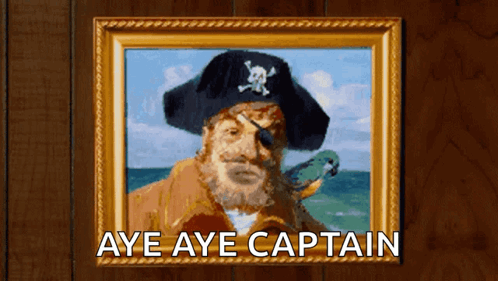No, seriously, I don't understand why video games company being so fucking greedy
If company want to be disrespectful, then we can do this piracy
If company want to be disrespectful, then we can do this piracy
long live captain oraaNo, seriously, I don't understand why video games company being so fucking greedy
If company want to be disrespectful, then we can do this piracy



Wisdom, right here.No, seriously, I don't understand why video games company being so fucking greedy
If company want to be disrespectful, then we can do this piracy
Wisdom?Wisdom, right here.
Yeah, what you said is wise, makes sense.Wisdom?
Oh, I see. I just Italian and And I still kind of learning EnglishYeah, what you said is wise, makes sense.
No problem amico.Oh, I see. I just Italian and And I still kind of learning English
What the heck is that supposed to mean?If they are disrespectful to you,
be disrespectful too.

Even when games were physical you basically were buying the licence to legally use said program,the support itself is just a tool to use them.

While I agree with the sentiment. I'm not particularly fond of the phrases "If buying isn't owning, then piracy isn't stealing." Or the similar phrase "You can't steal what you can't buy." Because it weakens the argument for piracy by being illogical.
Firstly, if buying isn't owning means that piracy isn't stealing. Then it stands to reason that if buying was owning, then piracy would be stealing. Except piracy is never stealing (at least not in the traditional sense). Since stealing would imply removing the original. Piracy makes a copy. It's closer to stealing the same way as stealing someone's idea. It's a completely different concept to what most people think of when stealing is mentioned.
Secondly, you totally can steal things that you can't buy. As an example, I can't buy the crown jewels, but I certainly can steal them. I can't buy the books from a library, but I can definitely steal them. And there's plenty of other examples, such as the government can steal land when they can't buy it, and so and so forth.
So as someone who promotes piracy, I'm against those phrases simply because under scrutiny, they make piracy sound like a philosophy that doesn't stand up to reason. While in actuality, it does.
But like I said, I agree with the sentiment behind it.
This. There is also the other truism about Capitalism: Customers are not obligated to buy from you, they can buy from anyone else or simply not at all.I generally prefer a different truism.
"When companies make it inconvenient to purchase games, piracy becomes a necessity"
If they want you to spend more money to play a game you already own, for example, just pirate it.What the heck is that supposed to mean?
Technically you could still be dependant on a server online to activate a game. Yes, Games For Windows Live basically forced you to do that even with physical games.Maybe theoretically, but practically you owned a piece of plastic casing and a silicone chip with a copy of the game data on it. No one could take it away from you. Or a plastic disc with a copy of the data. The end user agreement just served to clarify that they were selling a license to use the data and not ownership of the data itself.
Now through digital licenses they reserve the right to take away the license to the game when before they didn't have such an option.
The issue I got is that some people will try justifying unscrupulous actions by repeating the sentence while in reality they just want free games.While I agree with the sentiment. I'm not particularly fond of the phrases "If buying isn't owning, then piracy isn't stealing." Or the similar phrase "You can't steal what you can't buy." Because it weakens the argument for piracy by being illogical.
Firstly, if buying isn't owning means that piracy isn't stealing. Then it stands to reason that if buying was owning, then piracy would be stealing. Except piracy is never stealing (at least not in the traditional sense). Since stealing would imply removing the original. Piracy makes a copy. It's closer to stealing the same way as stealing someone's idea. It's a completely different concept to what most people think of when stealing is mentioned.
Secondly, you totally can steal things that you can't buy. As an example, I can't buy the crown jewels, but I certainly can steal them. I can't buy the books from a library, but I can definitely steal them. And there's plenty of other examples, such as the government can steal land when they can't buy it, and so and so forth.
So as someone who promotes piracy, I'm against those phrases simply because under scrutiny, they make piracy sound like a philosophy that doesn't stand up to reason. While in actuality, it does.
But like I said, I agree with the sentiment behind it.
That's better than "the customer is always right".This. There is also the other truism about Capitalism: Customers are not obligated to buy from you, they can buy from anyone else or simply not at all.
That is the main reason I don't actively support Switch emulation. A lot of people using it to pirate indie games on android phones and other under powered systems since they're a lot easier to emulate. I'm also not actively going to go against emulating the Switch, but it's like really, you're doing that to pirate Indie games which are often very small teams just trying to make ends meat.Same thing with indie games that are Epic Game Store exclusives so they prefer to pirate it despite being legally available.

